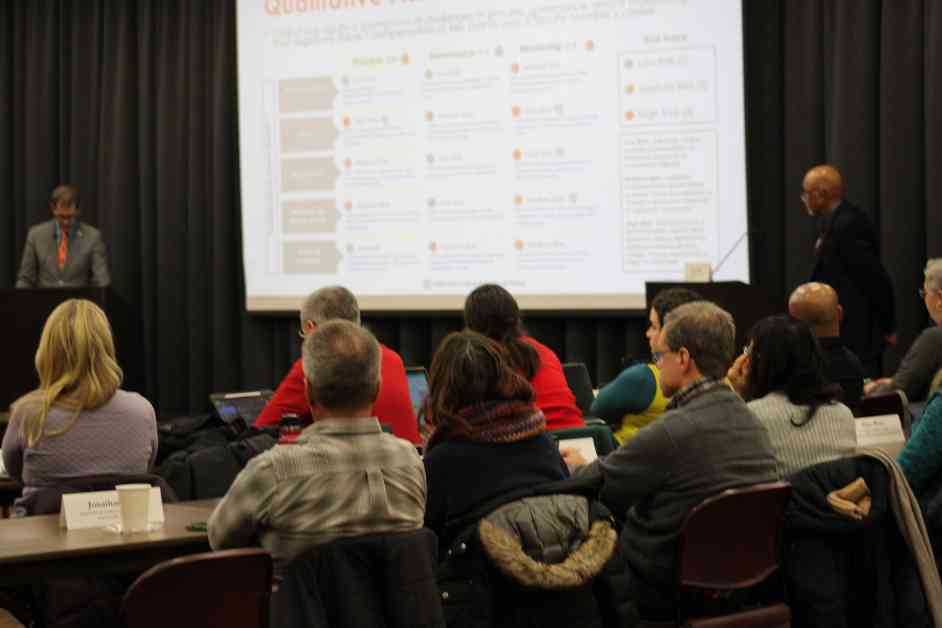Faculty Senate Deliberates on New Programs and Policies
In a bustling session held on February 11, 2025, at the Memorial Union in Ames, Iowa, the Faculty Senate engaged in discussions surrounding pay inequality, program proposals, and policy amendments. The Senate managed to pass three bills, postponed voting on two others, and laid the groundwork for several more that will be revisited in the upcoming month.
### A Closer Look at Passed Bills
During the session, the Faculty Senate focused on the second readings of five bills, with three receiving unanimous approval. The first bill under consideration was a proposal for the establishment of an undergraduate minor in graphic design, specifically in user experience design (UxD). This minor aims to provide students with a comprehensive understanding of user-centered design principles, focusing on the development of user interactions across various digital platforms.
The second successful bill of the day pertained to the enhancement of a program degree in family and community service. This proposal sought to expand the existing focus areas within the Innovative Digital Education Alliance (IDEA) program, offering working professionals an opportunity to pursue a fully online degree program tailored to a broader range of family-related services.
Lastly, the Faculty Senate approved a bill introducing a new area of specialization within an existing graduate degree program. The Veterinary Preventive Medicine (VDPAM) Graduate Program is working towards establishing five distinct specialization areas for Master of Science degrees, providing students with the option to delve deeper into a specific field of study or follow the core curriculum.
### Postponed Votes and Policy Discussions
While the Senate made significant progress in passing the aforementioned bills, they chose to postpone the second reading of a proposal for a new undergraduate minor in sports media and communication until the next meeting. This decision was made in response to feedback from various departments, highlighting the Senate’s commitment to transparent and inclusive decision-making processes.
Amidst discussions on academic progress and summer academic standards regulations, Senate members engaged in a lively debate regarding the implications of different learning formats on student success. Associate Professor Jan Boyles emphasized the unique challenges posed by summer session classes, advocating for a supportive approach that prioritizes student well-being.
However, not all Senate members shared Boyles’ perspective, with some expressing concerns about potential biases against online classes and shorter semester formats. Senator Meghan Gillette raised valid points about the need for a more nuanced approach to academic standards, considering the diverse learning experiences students encounter throughout their academic journey.
### New Business and Future Considerations
Looking ahead, the Faculty Senate introduced a new bill focused on proposing changes to annual reviews for probationary faculty members. The bill underscored the importance of documenting progress towards promotion and tenure, sparking discussions on the clarity and specificity of the proposed amendment.
As Senate members deliberated on the intricacies of the bill, differing opinions emerged regarding the role of faculty versus administrative oversight in documenting progress towards tenure. While some senators appreciated the simplicity of the amendment, others raised concerns about its potential ambiguity, emphasizing the need for clear guidelines to support faculty development.
With the proposal set for further review and potential amendments, the Faculty Senate remains committed to fostering a collaborative environment that values diverse perspectives and prioritizes the academic success of all stakeholders. As they prepare for their next meeting on March 4, the Senate members are poised to address emerging challenges and opportunities with a spirit of innovation and inclusivity.





















